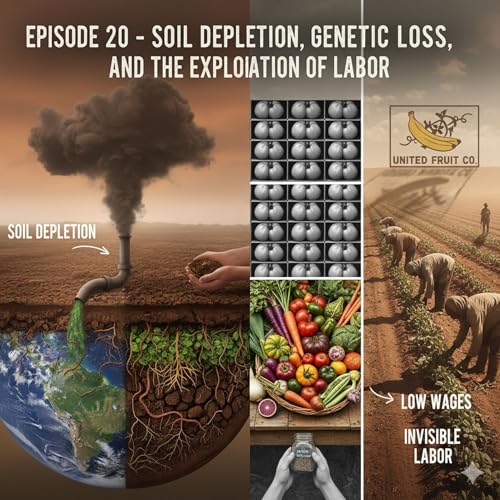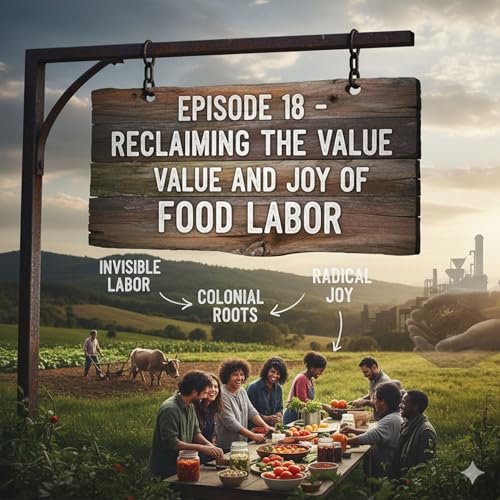
The Food System: From Farm to Fork
Failed to add items
Add to basket failed.
Add to Wish List failed.
Remove from Wish List failed.
Follow podcast failed
Unfollow podcast failed
-
Narrated by:
-
By:
-
Maitt Saiwyer
About this listen
The Food System: From Farm to Fork is the definitive, 100-episode journey that uncovers the hidden costs and potential solutions embedded in what we eat every day. We dive deep into the forces—from corporate monopolies to climate change—that shape our dinner plate, exploring everything from the industrial corn maze to the politics of the perfect tomato. Each episode dissects a critical piece of the chain, revealing how agricultural policy, global trade, and unseen labor struggles impact the quality of our food and the health of the planet.
We explore the great debates: pitting the efficiency of AgTech and vertical farms against the resilience of regenerative agriculture and ancestral wisdom. Our focus is on the radical idea that the health of the soil microbiome holds the key to drawing down atmospheric carbon and ensuring global food security. You'll gain a geopolitical understanding of food, learning how historical choices in farming have driven everything from empire building to modern social inequality.
This is more than just a critique; it is a blueprint for change, drawing on the wisdom of 50 foundational books and the insights of farmers, scientists, and activists. Join us as we challenge the illusion of cheap food, unpack the ethical consequences of our consumption, and empower you to participate in building a more just, resilient, and delicious food system.
Copyright 2025 All rights reserved.-
 35 mins
35 minsFailed to add items
Sorry, we are unable to add the item because your shopping cart is already at capacity.Add to basket failed.
Please try again laterAdd to Wish List failed.
Please try again laterRemove from Wish List failed.
Please try again laterFollow podcast failed
Unfollow podcast failed
-
 24 mins
24 minsFailed to add items
Sorry, we are unable to add the item because your shopping cart is already at capacity.Add to basket failed.
Please try again laterAdd to Wish List failed.
Please try again laterRemove from Wish List failed.
Please try again laterFollow podcast failed
Unfollow podcast failed
-
 28 mins
28 minsFailed to add items
Sorry, we are unable to add the item because your shopping cart is already at capacity.Add to basket failed.
Please try again laterAdd to Wish List failed.
Please try again laterRemove from Wish List failed.
Please try again laterFollow podcast failed
Unfollow podcast failed



